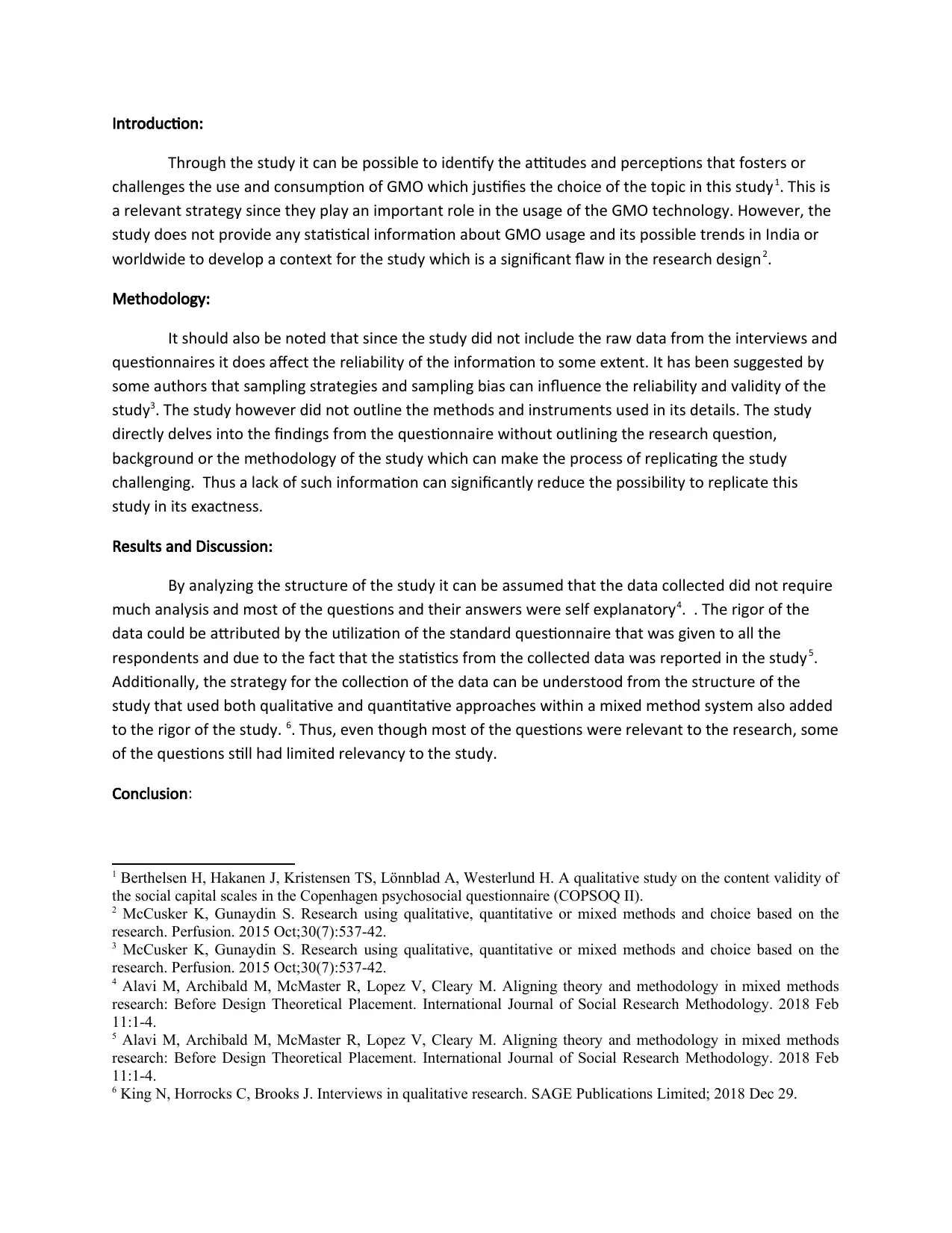Analysis: Attitudes, Perceptions, and Farmer Responses to GMOs India
VerifiedAdded on 2023/05/29
|2
|645
|146
Report
AI Summary
This report provides a critique of a study focusing on attitudes and perceptions towards Genetically Modified Organisms (GMOs) among farmers in India. The critique examines the study's introduction, highlighting the lack of statistical context regarding GMO usage trends. The methodology section assesses the reliability of the data, noting the absence of raw data and detailed descriptions of the methods and instruments used, impacting the study's replicability. The results and discussion are analyzed for data rigor, acknowledging the use of a standard questionnaire and mixed-method approach. The conclusion reflects on the study's insights into participant attitudes towards GMOs and the authorities they trust, while also emphasizing the importance of recommendations for future research. Desklib provides access to similar solved assignments and past papers for students.
1 out of 2








![[object Object]](/_next/static/media/star-bottom.7253800d.svg)